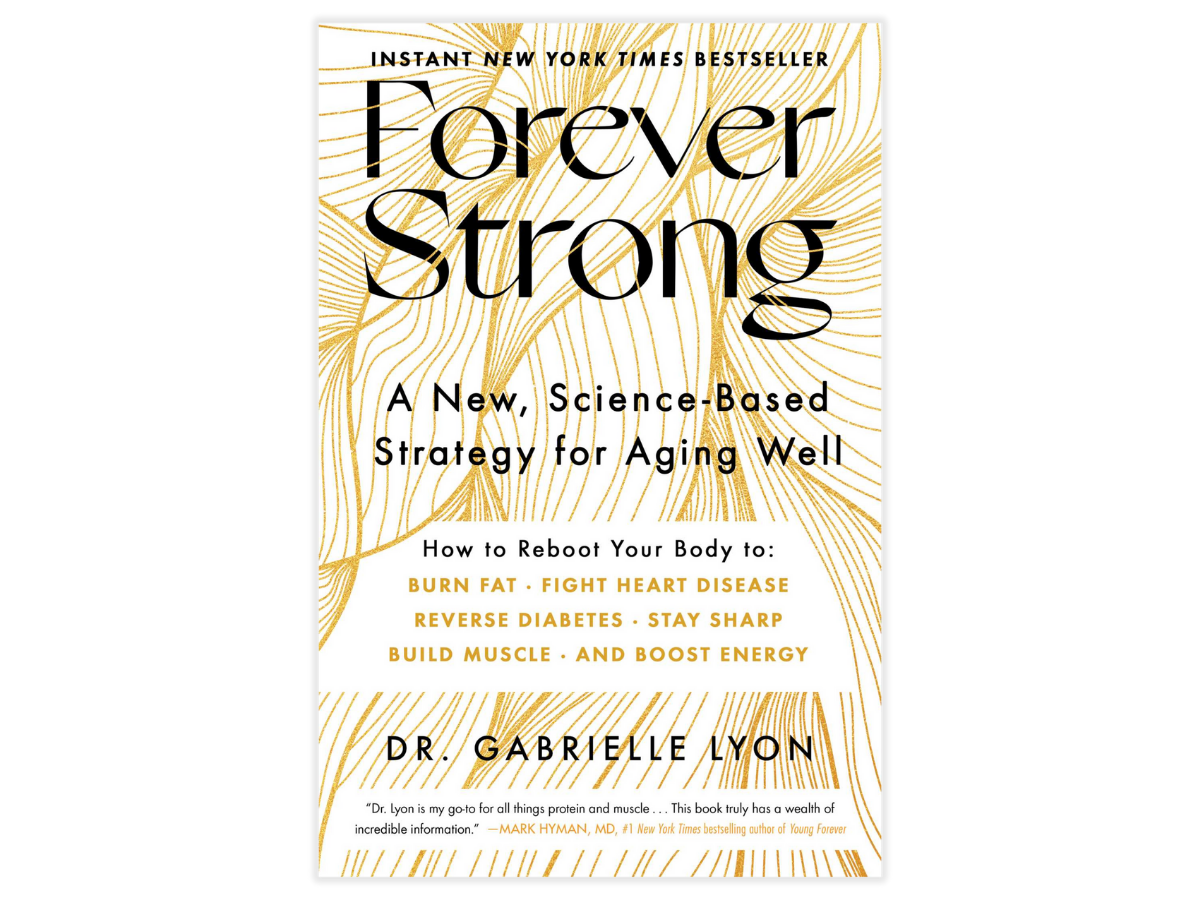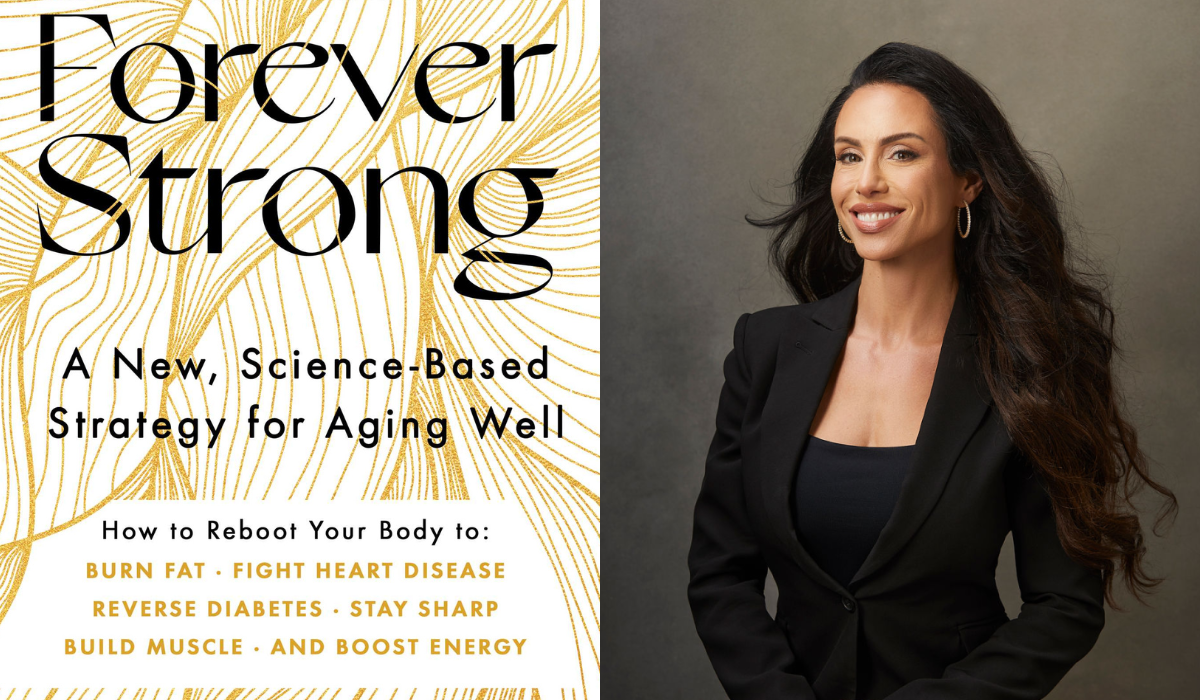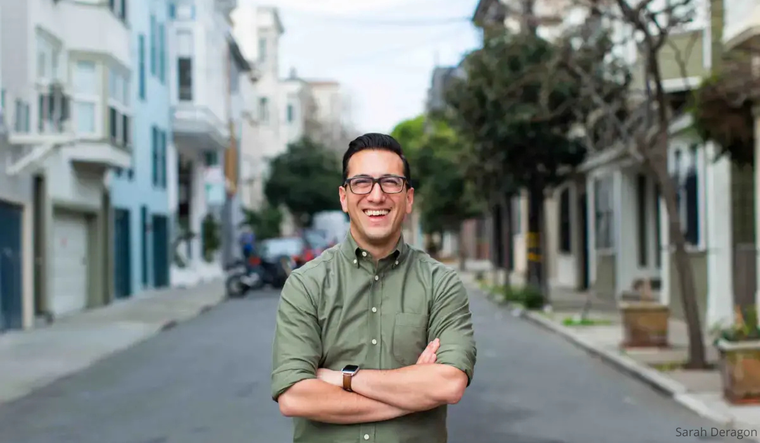Are You Under-Muscled? Dr. Gabrielle Lyon Says Most of Us Are—and It’s Keeping Us From Aging Well. Here’s How to Change That
Gabrielle Lyon, DO, had a major ah-ha moment in the years after she finished medical school. After completing fellowships in geriatrics and nutritional sciences, as well as running an obesity clinic, Dr. Lyon realized most of the patients she was treating had one thing in common: low muscle mass along with blood markers that indicated unhealthy muscle.
“I couldn’t understand why we kept chasing obesity when in fact, it was a lack of sufficient healthy muscle tissue that was the problem,” Dr. Lyon told The Sunday Paper. “Focusing only on fixing the obesity issue and all the health conditions that ride along with it misses the foundational step: building skeletal muscle.”
In her new book, Forever Strong, Dr. Lyon breaks down this foundational step too many of us miss. Here, she explains why most of us are “under-muscled,” how it’s impacting both our health and happiness, and where to start if you’re ready to start building more strength.
A CONVERSATION WITH DR. GABRIELLE LYON
You argue that our muscle health should be monitored along with our vital signs at our doctor visits. What does our muscle condition determine about our overall health?
Skeletal muscle is the largest endocrine organ system in the body. When you think about it, you go to the doctor and you get your heart checked, your lungs, your thyroid—and yet we completely overlook the skeletal system, an organ system that makes up 40 percent of body weight. We have to measure strength as well, whether it's via hand grip strength, walking speed, or how many push-ups, sit-ups, or squats one can do.
Your survivability against any cause of disease or death is going to be improved with the health of your skeletal muscle. The higher the amounts of healthy skeletal muscle, the greater your survivability.
You dedicate much of the book to protein, the macronutrient that helps repair and build muscle. Are most of us getting too little protein?
First, let's define “too little” protein. The media tells us we're getting plenty of protein. But the question becomes, “Plenty in relationship to what?” The current recommended daily allowance (RDA) is set at 0.8 grams per kilogram of body mass. For someone who weighs 150 pounds, this equates to just about 54 grams of protein per day. The RDA is put in place as the minimum to prevent a deficiency. So when we hear in this narrative that we're getting too much protein, we are getting plenty to prevent a deficiency. But when we're thinking about how we want to age, how women need to support body composition changes through menopause and beyond? The RDA is not adequate. A more optimal range, based on scientific evidence, is having between 1.2 to 1.6 grams of protein per kilogram of your body weight every day. For most adults, that’s about 100 grams of protein daily, give or take.
What’s the best way to gauge how much protein we’re actually consuming?
The first step is to get comfortable tracking what you eat. You don’t have to do it forever; but even just a short period of tracking will help you see how much protein you’re eating.
Step No. 2 is to make getting enough protein easy. It shouldn't take a lot of thought and effort. One way to do this is to make sure your first meal of the day is prioritized for dietary protein. This alone will make all the difference in the world—from a muscle perspective, from a body composition perspective, from a satiation perspective, from a nutrient density perspective. Have some eggs, mix a half cup of Greek yogurt with a scoop of whey protein or a rice pea blend protein. The options are endless.
What’s your message to women about the importance of starting a dedicated strength-training program?
The habits you develop now will take you in through the next couple decades. If you have been someone who has been uncomfortable going into the gym to lift weights, it’s time to change this perception about yourself. Lifting is non-negotiable for women, especially in midlife, because as we go through menopause we lose muscle much faster than men. Our body composition also changes more dramatically—and it doesn't have to. Yes, there's a place for yoga and Pilates. But it’s important to shift our focus and to understand we are training for life.
We are not training to be better at exercise. We are training to be more effective and more capable in the domains of the world that we live in. Women should be lifting three days a week. We should be training to build capacity so that we can become strong and maintain that strength, so that we can show up for our families show up for our community for the next handful of decades.
Where do we start?
First, know this: You don't have to lift heavy. It could be lighter weights and more repetitions. You could start with bodyweight exercises, like air squats or modified push-ups. Then, you can move to resistance bands, followed by weights.
It just has to be done. And it is so doable. You’ll find all kinds of exercises in my book, which I wrote for people who don’t have a gym membership.
What do you most want people to do after they read your book?
Muscle is the organ of longevity. If we shift our paradigm of thinking to focus on muscle, we can change the way that we age and optimize our health and wellness in a way that not just creates physical strength, but creates mental strength as well.
Muscle is the currency of longevity that can't be bought or bargained for or traded for. But in order to develop strength, you have to become a certain kind of person. As you are building and improving your nutrition and doing resistance training, you're not just changing the physiology of your body. You are becoming someone who is even more capable and more courageous and stronger. This is what it means to be forever strong.

Dr. Gabrielle Lyon is a board-certified family medicine and fellowship-trained physician in nutritional sciences and geriatrics. She is the author of the new book, Forever Strong: A New, Science-Based Strategy for Aging Well.
Please note that we may receive affiliate commissions from the sales of linked products.



